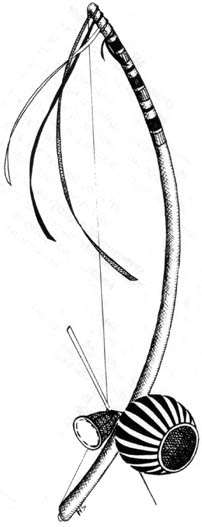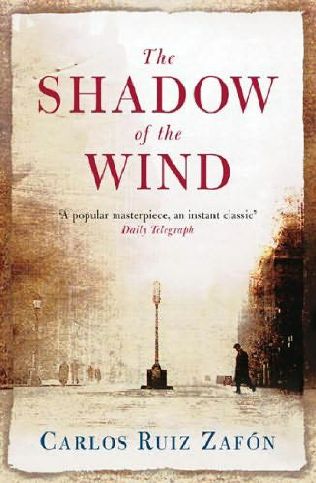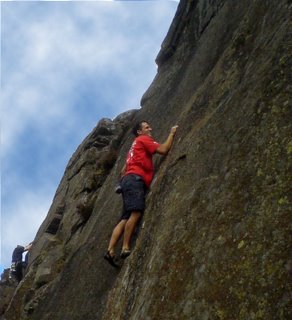skip to main |
skip to sidebar
 The most important instrument when playing Capoeira is the berimbau. It's basically a single string tensioned over a wooden stick, with an amplifying gourd at the bottom. There are only two notes (altered by pressing a stone against the string) but a variety of percussive sounds possible, and it is quite tricky to consistently play even a basic rhythm - let alone sing aswell! Djanira and her father Jorge have written an article about it, which you can find here.
The most important instrument when playing Capoeira is the berimbau. It's basically a single string tensioned over a wooden stick, with an amplifying gourd at the bottom. There are only two notes (altered by pressing a stone against the string) but a variety of percussive sounds possible, and it is quite tricky to consistently play even a basic rhythm - let alone sing aswell! Djanira and her father Jorge have written an article about it, which you can find here.
I recently bought a new berimbau (from www.capoeiragem.com) because the one I borrowed from Jorge had...errr...an accident. Very embarrassing. Suffice it to say that Jorge is now the owner of a brand new berimbau, which I am borrowing on a long term loan. The biggest problem is that it is bloody impossible to string the thing! It's so hard to bend the wood and I don't want to try and bend it too much because they do break :(
 Carlos Ruiz Zafon's novel, The Shadow of the Wind, is an international bestseller, and was recommended to me by several people. Furthermore, it also has the dubious honour of having been in Richard and Judy's book club, which of course makes it a must read!
Carlos Ruiz Zafon's novel, The Shadow of the Wind, is an international bestseller, and was recommended to me by several people. Furthermore, it also has the dubious honour of having been in Richard and Judy's book club, which of course makes it a must read!
Set in Barcelona shortly after the Second World War, it tells the story of Daniel, the teenage son of a bookseller, and his quest to unearth the history behind a mysterious book - also called the Shadow of the Wind - and its now-deceased author, Julian Carax.
It's hard not to like this book. It's an old fashioned mystery story, with goodies, baddies, a bit of violence, a bit of sex, lots of rain and plenty of dark alleys and creaky old houses. There's suspense by the bucketload and, despite it being quite a long book, I never once got bored.
Of course it is rather unrealistic - our hero Daniel frequently exhibits maturity beyond his tender years, before acting correctly for his age a few pages later. But such things have never stood in the way of a good yarn and, in my opinion, they never should do. Though I wonder whether the story appeals more to boys than girls? Djanira read the book before me, and enjoyed it; but Daniel tells his story in the first person, and thus the entire book is seen very much through a boy's eyes.
Anyway I thoroughly recommend it - although I must admit I'm rather pleased to have finished it. I have recently taken delivery of three more Iain M. Banks books, so now it's back to the Sci-Fi for a while...
 I'm not usually that good at starting new things, but after a few weeks of umming and ahhing a lot, I bit the bullet and started Capoeira classes. If you don't know anything about Capoeira, it's basically unique combination of fighting, dancing and music, that was developed by African slaves in Brazil as a method of self-defense that could be practised without their Portuguese masters punishing them for actually fighting - because while it involves lots of fighting-like moves (kicks, punches, headbutts, trips, you-name-it) there is actually little actual physical contact. It's all set to a unique Brazilian music, and you can find loads more info here.
I'm not usually that good at starting new things, but after a few weeks of umming and ahhing a lot, I bit the bullet and started Capoeira classes. If you don't know anything about Capoeira, it's basically unique combination of fighting, dancing and music, that was developed by African slaves in Brazil as a method of self-defense that could be practised without their Portuguese masters punishing them for actually fighting - because while it involves lots of fighting-like moves (kicks, punches, headbutts, trips, you-name-it) there is actually little actual physical contact. It's all set to a unique Brazilian music, and you can find loads more info here.
It is phenomenally popular in Brazil but has now expanded worldwide along with the travels of Brazilian expats. London has several schools, and I decided to join Capoeira Canal, a small school which meets near me in West London - partially because it's so close but partially because it offered structured beginner classes, rather than the "beginners turn up to any class" attitude of other schools.
What can I say? I'm hooked! I love the combination of aggressive, purposeful movement, the strangely hypnotic music, and the fact that you don't really get hurt - although my leg muscles were aching for a few days after the first class! I particularly like the non-stop movement - many martial arts seem to emphasise rigid control and focus, whereas Capoeira encourages you to become absorbed in the constant movement and the rhythm of the music.
So far I've had two lessons and learned the ginga (pronounced in English: 'jinga'), which is the basic movement which underscores all of Capoeira, a few simple dodges (esquivas), and a couple of kicks. I've also learned two really important moves, the rolê and aú, which let you step and cartwheel across the ring (the roda) and to keep moving, which pretty much the central tenet of Capoeira.
It's great fun, I'm really enjoying it, so expect more updates as I learn new moves and how to play the berimbau, the main instrument. If you're lucky you may even get to laugh at a video of me falling over!
 Yesterday the weather was ideal for climbing gritstone, in my opinion - cool enough to guarantee good friction, though not so cold that your fingers drop off. So Damo and I drove up early to meet Dave J at Froggatt, in the Peak District. Last time I climbed there I was just breaking into E1, and since then I've been looking forward to having a go at a couple of the mid-grade classics - no room for error though!
Yesterday the weather was ideal for climbing gritstone, in my opinion - cool enough to guarantee good friction, though not so cold that your fingers drop off. So Damo and I drove up early to meet Dave J at Froggatt, in the Peak District. Last time I climbed there I was just breaking into E1, and since then I've been looking forward to having a go at a couple of the mid-grade classics - no room for error though!
Great Slab E3 5b
What a brilliant, brilliant route, one of the great classics of British climbing. There is no gear anywhere on the slab so there's no point with ropes or harness. Years ago I never thought I'd even consider doing it, but I'm really glad that I changed my mind. It's far from the most technically difficult route that I've done, but it still ranks as one of the finest, most exhilarating moments of my climbing career so far. I'm looking relaxed in the photo but that was before the crux!
Long John's Slab E3 5c
Another gearless Froggatt slab climb, harder climbing than Great Slab but less psychologically draining, as the moves are more obvious. The crux is stepping off the ground, basically, though the landing wouldn't be particularly pleasant. Barely justifies E3, but I suppose it would be a mean sandbag at E2.
Brown's Eliminate E2 5b
Yet another Froggatt slab climb, but this time with two good cams at half height and an easy top-out. The grade is spot on, and the crux moves, stepping off the half-height ledge, are great.
I also did Brightside E2 5c, but I think I went off route which made it rather easier - in which case it's a very contrived line and barely worth bothering with. And I had a play on the start of Downhill Racer E4 6a, but backed off from the low crux, as I wasn't 100% sure of making it. It's still there for the future...and, crucially, so am I!
 The Red Bull District Ride has just finished it's second round out in Nuremburg, and you can watch the highlights to your heart's content here. It's almost enough to make me want to go out on a street ride again. Though not quite. Pretty amazing stuff but I can't help thinking that, while these guys get a lot of air, in terms of technicality MTBing is still lagging miles behind BMX. The difference is that the MTB scene lacks the hate-everything, individualistic attitude that plagues BMX culture - thus its more corporate image attracts the big name sponsors, which is why a BMX competition has yet to get the run of the centre of a large European city.
The Red Bull District Ride has just finished it's second round out in Nuremburg, and you can watch the highlights to your heart's content here. It's almost enough to make me want to go out on a street ride again. Though not quite. Pretty amazing stuff but I can't help thinking that, while these guys get a lot of air, in terms of technicality MTBing is still lagging miles behind BMX. The difference is that the MTB scene lacks the hate-everything, individualistic attitude that plagues BMX culture - thus its more corporate image attracts the big name sponsors, which is why a BMX competition has yet to get the run of the centre of a large European city.
It annoys me in a way because there are riders out there really pushing the boundaries of technical MTB-riding, trying to fuse the best parts of MTB-street, BMX-street and dirt-jumping into one package. But people like Ryan Leech, Chris Akrigg and Eddie Tongue are either relegated to bit parts in the latest New World Disorder flick, or have stepped back from the pro-riding limelight, as they're not getting the money/sponsorship/recognition that they deserve.
So, while it's all very impressive seeing the Paul Basagiotas and Cam McCauls of this world pulling a backflip or tail-whip with a gothic cathedral in the background, it's tempered by the fact that they're riding a trail that was blazed by our 20" wheel cousins several decades ago. The money's only there now because of the packaging.
 A couple of years ago, I borrowed one of Scuffy's Iain M. Banks books, The Player of Games, but I didn't manage to get into it, though in fairness I didn't try very hard. Since then I read Banks' latest book, The Algebraist, and enjoyed it, so decided to give his earlier books another chance.
A couple of years ago, I borrowed one of Scuffy's Iain M. Banks books, The Player of Games, but I didn't manage to get into it, though in fairness I didn't try very hard. Since then I read Banks' latest book, The Algebraist, and enjoyed it, so decided to give his earlier books another chance.
Fortunately Mr Paul had a spare copy of Consider Phlebas that he was happy to lend me. This is Banks' first book set in the universe of the Culture, a society where sentient machines have gradually taken over the hum-drum of everyday life, leaving the organic species within the Culture free to enjoy themselves and live a life of carefree happiness - at the expense of essentially being ruled by artificially intelligent beings. Undoubtedly, it is a fascinating premise and, being a bit of a closet sci-fi/fantasy geek, it is a wonder why I have not got round to reading this book, and it's successors, much sooner. Especially given that they were written over 10 years ago. Ah well, better late than never.
The background story of the book is based around war - with the Culture defending itself against the expansion of an evolutionarily advanced, organic species called the Idirans. The Idirans are a highly religious, warlike people, who are offended by the very concept that the Culture should exist. Banks balances both sides in the war perfectly, painstakingly developing the good and bad aspects of both societies, so that even at the end of the book the reader isn't sure which side they should been supporting. It is a clever ploy as it allows you to be swept up in the central story of the characters - wanting them to succeed in their quest, but never being sure if, in the grand scheme of the war, their success would actually be a good thing!
Overall I enjoyed it very much, the action moved on at a fair old lick but it still took a step back every now and again to let the characters and situation to be fleshed out. I shall definately get hold of another Culture book - does anybody have any recommendations for which is best to read next?
 The most important instrument when playing Capoeira is the berimbau. It's basically a single string tensioned over a wooden stick, with an amplifying gourd at the bottom. There are only two notes (altered by pressing a stone against the string) but a variety of percussive sounds possible, and it is quite tricky to consistently play even a basic rhythm - let alone sing aswell! Djanira and her father Jorge have written an article about it, which you can find here.
The most important instrument when playing Capoeira is the berimbau. It's basically a single string tensioned over a wooden stick, with an amplifying gourd at the bottom. There are only two notes (altered by pressing a stone against the string) but a variety of percussive sounds possible, and it is quite tricky to consistently play even a basic rhythm - let alone sing aswell! Djanira and her father Jorge have written an article about it, which you can find here.



